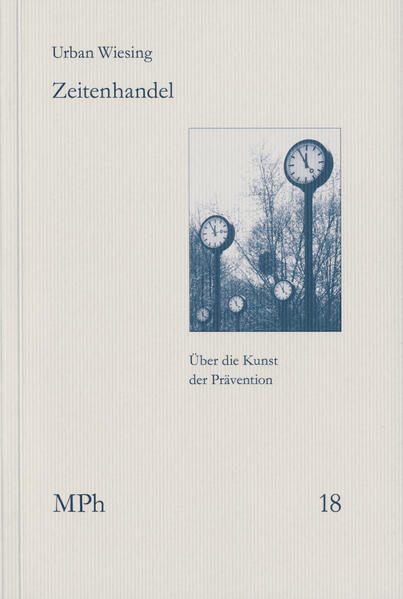Prevention has a fabulous reputation. It is virtually always considered to be good! But a closer look reveals a differentiated picture: Individual behavioral prevention means shaping the present in order to gain advantages in the future. It is a time trade. This can succeed or fail, influences the experience of time and can lead to paradoxical results. And the ethical question remains: Is there a moral duty for individual behavioral prevention? Most likely not, but a preventive way of life can contribute to a successful life. So is prevention always good? In his book, Urban Wiesing shows from the perspective of philosophy and medicine that the matter is more complicated: Prevention often contributes to a successful life, but other lifestyles can also be convincing and succeed.




















